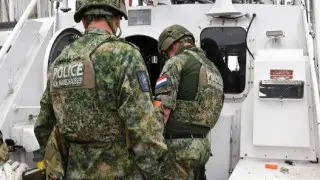Tengrinews.kz – The Netherlands will introduce enhanced border controls to combat illegal migration, according to NOS.
Starting December 9, stricter border measures will be enforced to address illegal migration and prevent human trafficking. The Dutch government has decided to temporarily restrict the free movement of people and goods within Europe for six months, with a possible extension if necessary.
How Will the Controls Be Implemented?
The Royal Netherlands Marechaussee (Koninklijke Marechaussee) will handle these operations, although no additional resources have been allocated yet. Minister of Migration Carla Faber explained that priorities will be assessed on a daily or weekly basis.
“There will be daily or weekly evaluations to determine the specific needs,” she noted.
Faber also emphasized that adjustments could be made to staff levels at major hubs like Schiphol Airport if more personnel are needed at border regions.
Reasons for Enhanced Controls
Under EU regulations, internal border checks are allowed only in exceptional cases, such as significant security threats or sudden crises. The Dutch government cited the high strain on the refugee reception system and an increase in asylum applications as justification for these temporary measures.
Support from Other EU Countries
The Netherlands follows the example of Germany and France, which have already implemented similar temporary border checks to combat illegal migration and terrorism threats. These measures can be extended for up to two years if the situation remains critical.
Impact on the Economy and Local Travel
Minister Faber assured that the new measures will be organized to minimize disruptions to economic activity and local travel in border regions. At Schiphol and other major airports, checks will target specific flights deemed to carry potential migration risks.
Reactions and Potential Consequences
The government’s decision, based on new coalition agreements, has been supported by a majority of political parties. However, some opposition parties and experts have questioned the legality of such restrictions under existing EU norms. They argue that these measures could undermine the principles of free movement within the Schengen Area.
Minister Faber promptly informed the European Commission and all EU member states about the decision, as required by EU regulations, four weeks before the restrictions come into effect.
Earlier, France reinstated border controls following Germany’s lead. From November 1, 2024, to April 2025, France will conduct checks at all land, air, and sea borders with Luxembourg, Belgium, Germany, Switzerland, Spain, and Italy, citing security concerns.
In a related development, the Italian city of Pompeii recently announced plans to limit daily visitor numbers to 20,000 to manage “over-tourism.”

